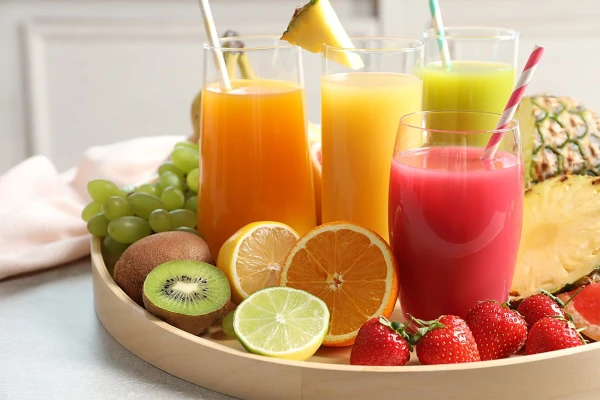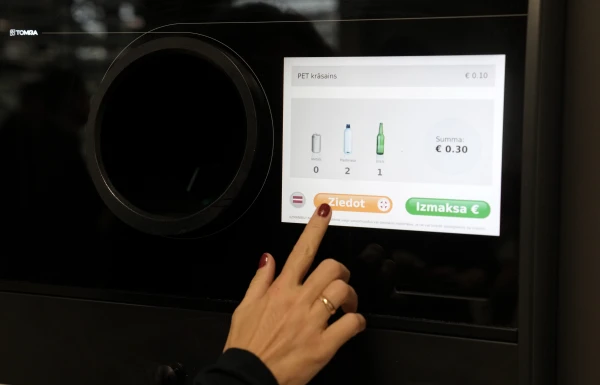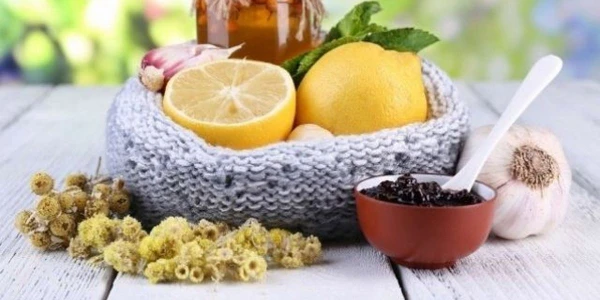
Consuming fruit juice is an easy way to get more vitamins and minerals, but experts warn that sometimes it can do more harm than good, writes Dailymail. The UK public health organization recommends limiting fruit juice consumption to 150 ml per day - as excess can lead to tooth decay, obesity, and type 2 diabetes.
Dietitian Rob Hobson explained which fruit juice is the healthiest for the body and which juices are better to avoid.
Pomegranate Juice
Pomegranate juice is Hobson's favorite as it is rich in polyphenols that help maintain heart health by reducing oxidative stress and improving endothelial function — the lining of blood vessels. It is also rich in ellagitannins — compounds that interact with starchy foods, reducing the usual spike in blood sugar after meals, he adds.
"Interestingly, studies show that consuming pomegranate juice with bread lowers blood sugar levels, but this effect was not observed with supplements," he added.
Orange Juice
Orange juice is rich in vitamin C (more than half of the recommended daily allowance), folic acid, and potassium, making it one of the healthiest fruit juices, says Hobson.
Research has even shown that regular consumption of juice in small amounts can improve dietary quality and increase vitamin C levels while reducing inflammation.
Grapefruit Juice
"Each glass contains nearly half of your daily vitamin C requirement and is rich in potassium and plant compounds like naringin, which have antioxidant and anti-inflammatory properties that help maintain heart health and blood sugar control," he explained.
However, those taking medications such as statins, some blood pressure drugs, and antidepressants should be more cautious. The compounds found in grapefruit block the enzyme CYP3A4 in the intestine. As a result, the levels of some medications may increase in the bloodstream, leading to dangerous side effects.
Cranberry Juice
"Although cranberry juice cannot cure a urinary tract infection, it may help reduce the risk of recurrences in some people," notes Hobson.
This is because cranberries contain a group of compounds called proanthocyanidins (PACs), which have been shown to prevent certain bacteria, such as E. coli, from adhering to the walls of the urinary tract, causing UTIs.
Pineapple Juice
It is a good source of vitamin C, manganese, which helps maintain bone health by activating key enzymes involved in the formation of bones, cartilage, and collagen, as well as bromelain.
Bromelain is believed to aid digestion and reduce inflammation, making pineapple juice an appealing choice for those suffering from inflammatory conditions such as rheumatoid arthritis and high blood pressure.
"The downside is that it contains quite a bit of natural sugars, so portion control is more important here than with tomato or vegetable juice," the dietitian warned.
Apple and Grape Juice
"Apple and grape juices tend to contain more natural sugars but fewer vitamins and antioxidants compared to options like orange or pomegranate juice," claims Hobson.
However, studies have shown that apples, rich in flavonoids, promote healthy aging. In another recent study, researchers found that consuming two apples a day reduced levels of 'bad' cholesterol by nearly four percent, although this only applied to whole fruits, not apple juice.
Additionally, studies in mice show that juice may protect against dementia and alleviate symptoms of anxious agitation in Alzheimer's patients.
What is the danger of fruit juice
"When you drink juice, your body absorbs natural sugars and nutrients faster than from whole fruits because the fiber is removed. You still get vitamins and minerals, often in highly bioavailable forms, but you lose the beneficial properties of fiber for gut health, feelings of satiety, and blood sugar regulation," explains Hobson.
Research has long shown that fruit juice can contribute to weight gain, partly because it is harder to control portions, as many people pour themselves more than the recommended 150 ml per day, consuming significantly more calories.














Leave a comment